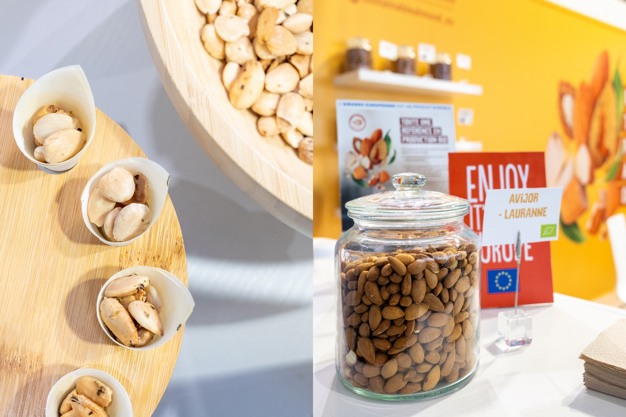The European almond is a phenomenon in Spain and beyond. 2023 was a key year for almond consumption in Spain, which grew by 32.6% over the previous year (from 11.1 million kg to 14.7 million), according to data from the Ministry of Agriculture, Fisheries, and Food. A large part of this increase is due to the European product, a healthy and sustainable food of Iberian origin, grown in Spain and Portugal, which is quickly becoming a trend.
In 2023, the market value of almonds in Spain increased by 26.6%, going from 140.7 million in 2022 to 178.2 million euros. In addition, Spaniards' per capita expenditure on this product stood at 3.81 euros (+25.2%). This product already accounts for 9.2% of the total volume of nuts consumed in the country and for 13.5% of the market value of the entire category. The majority of consumers in Spain are couples with middle-aged or older children, adult couples without children, and retired people.

This boom in national consumption reinforces the Sustainable EU Almond promotional campaign, co-financed by the EU, that the Spanish Almond Board-Almendrave association and the Portuguese association CNCFS (Centro Nacional de Competências dos Frutos Secos) have carried out for the past year asserting the Iberian origin of almonds and highlighting their quality and sustainability. The promotional campaign presented both to the Spanish public and to the public of third European countries, such as France and Germany, mainly highlights that most of the almond trees in the Iberian Peninsula are grown in rainfed conditions and promotes varieties of its own, such as Guara, Belona, or Avijor-Lauranne.
Export power
The Iberian Peninsula is a major exporter of almonds and Spain has consolidated its position as the world's second-biggest exporter of almonds, only behind the United States, with no less than 9% of the global total. Spain exported 130.8 million kilos of almonds in its three main presentations (grain, toast, and almond flour), mostly (87%) to other European markets.
France and Germany, which are also targeted by the Sustainable EU Almond campaign, are two of the most important destination markets.
In 2023, France imported 30.9 million kilos of Spanish almonds, with a special emphasis on almond flour: up to 6.4 million kilos. This amounts to 35% of all Spanish almond flour exports. Germany imported 26.1 million kilos in total.
All these figures place the Iberian Peninsula, and Spain in particular, at the epicenter of one of the great food trends of the moment.
For more information:
www.sustainablealmond.eu
